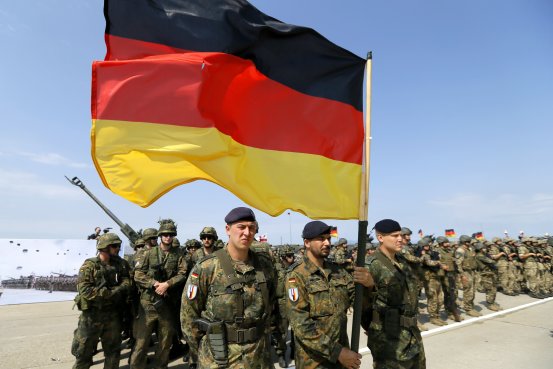
Artigo elaborado por Pedro Gerhardt Corrêa e Victor Calastri Manzoni
Após o ataque russo à Ucrânia, a Alemanha decidiu aumentar drasticamente seu orçamento de defesa e direcionar ao Bundeswehr (exército alemão) mais 100 bilhões de euros, triplicando o orçamento atual e quebrando uma tradição histórica que data desde o fim da Segunda Guerra Mundial, quando foi imposto à Alemanha ao término da guerra que teriam que reduzir o tamanho e a força de seu exército. Em um discurso no Bundestag, parlamento da Alemanha, o primeiro-ministro, Olaf Scholz, afirmou que, para garantir a liberdade e a proteção de seu país, era necessário investir na segurança do mesmo, afirmando também que não existe outra resposta à invasão do Presidente Putin à Ucrânia.
Dessa forma, a Alemanha alcançará a meta da OTAN de investir 2% do produto interno bruto (PIB) do país em defesa. De acordo com Martin Hurt, do Centro Internacional para Defesa e Segurança, a ação alemã incentivou outros países próximos à organização a impulsionar seus gastos em segurança e estabelecer metas para chegar aos 2%, principalmente dois países nórdicos: Dinamarca e Suécia. Mesmo que não estejam dispostos a ir tão longe ou tão rapidamente, Hurt afirma que outros países se posicionaram brevemente.
Essas medidas adotadas pelo governo alemão trouxeram surpresa para membros e estudiosos de segurança e defesa do país, pois, além de ser um grande salto econômico e militar, também entra em conflito com a tradição acordada no fim da Segunda Guerra Mundial da não expansão bélica alemã. Outra medida que vai contra esse pacto histórico foi a distribuição de armas para outros países, como a Ucrânia, mas também a países terceiros, como Estônia e os Países Baixos. Com isso, é possível perceber que a Alemanha inicia, de maneira gradual, uma liderança militar na Europa novamente.
No entanto, enquanto o discurso do primeiro-ministro foi clamado pelos deputados, houve também uma série de preocupações e críticas da esquerda do governo. A líder do Social Democrata, Jessica Rosenthal, disse que não tinha motivos para jogar bilhões de euros em um buraco negro. Membros dos Verdes, que têm preocupações semelhantes, dizem que a necessidade de maiores incentivos para os militares é um excelente exemplo de má gestão.
REFERÊNCIAS
ALJAZEERA. Germany to ramp up military spending in major policy shift. Disponível em: https://www.aljazeera.com/news/2022/2/27/germany-to-ramp-up military-spending-in-major-policy-shift. Acesso em: 28 mar. 2022.
DEUTSCHE WELLE. Germany’s army: Will €100 billion make it strong? Disponível em: https://www.dw.com/en/germanys-army-will-100-billion-make-it-strong/a 60996891. Acesso em: 25 mar. 2022.
EURONEWS. Germany’s military spending spree: What can you buy for €100 billion? Disponível em: https://www.euronews.com/2022/03/25/germany-s-military spending-spree-what-can-you-buy-for-100-billion. Acesso em: 31 mar. 2022.
FEDERAL MINISTRY OF DEFENCE. Over EUR 100 billion for the Bundeswehr – and for our security. Disponível em: https://www.bmvg.de/en/news/over-eur-100- billion-for-the-bundeswehr-and-for-our-security-5362626. Acesso em: 30 mar. 2022.
THE GUARDIAN. Germany to set up €100bn fund to boost its military strength. Disponível em: https://www.theguardian.com/world/2022/feb/27/germany-set-up-fund boost-military-strengh-ukraine-putin. Acesso em: 26 mar. 2022.
THE TELEGRAPH. Germany´s plans for massive investment have critics questioning if it´s too little too late. Disponível em: https://www.telegraph.co.uk/world news/2022/04/02/germanys-plans-massive-military-investment-have-critics questioning/. Acesso em: 1 abr. 2022.
O Núcleo de Estudos e Negócios Europeus (NENE) está ligado ao Centro Brasileiro de Estudos de Negócios Internacionais & Diplomacia Corporativa (CBENI) da ESPM-SP. Foi criado considerando a necessidade de estimular a comunidade acadêmica brasileira e latino-americana a compreender melhor suas relações com os europeus, buscando compreender e aprofundar a Parceria Estratégica Brasil – União Europeia.
